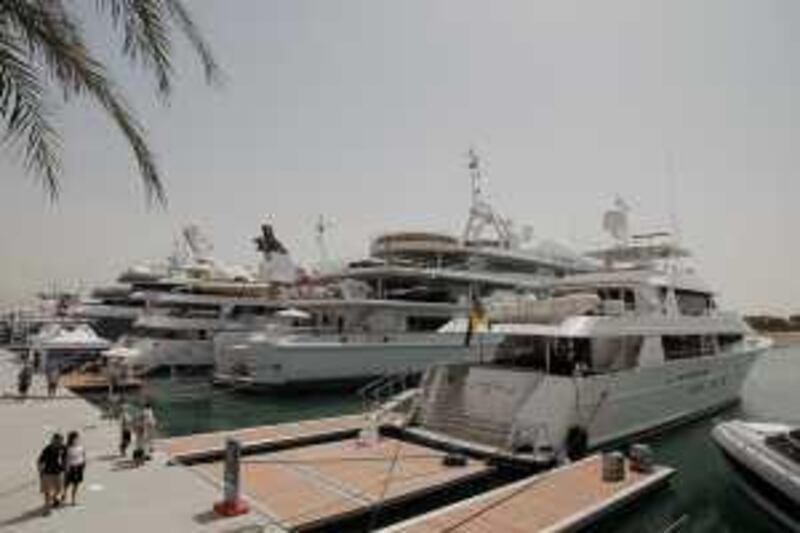Of all of the distress signals that appeared on the dashboard of the global financial system in late 2008, for me only one stood out as a true harbinger of hard times ahead - even the rich had stopped spending. When the only people in the world who actually have money refuse to help power the economy machine, you know you're in trouble. So it was a bit of a relief to hear that the ultra wealthy are coming out of their gilded bunkers.
"There was a cutback of spending, not out of necessity but of social perception," said Edward Bagnall, marketing manager and corporate business development officer for Quintessentially in Dubai. "Now they are going out wanting to spend money." At the high-end concierge service, memberships are growing. For a mere Dh164,000 a year, clients can command Quintessentially to corral a dozen albino peacocks for their lawn parties within 24 hours or arrange for al fresco dining on an iceberg in Greenland.
As the rest of us work longer and harder for less - in the US, the world's largest economy, productivity soared to 6.2 per cent in the fourth quarter of last year - such news may be tough to take. But, as we've heard, the rich aren't like you and me. And envy aside, that's a good thing for the economy. Their discretionary spending helps to set off a virtuous cycle fuelling overall economic growth.
Ajay Kapur, a former Citigroup analyst who now runs a Hong Kong hedge fund, baptised these well-heeled denizens the "plutonomy", a society in which the majority of wealth is controlled by an ever-shrinking minority making economic growth dependent on the fortunes of that same minority. That ratio is even more acute in the Gulf, where some of the world's wealth is most densely concentrated. In addition to the latest news about Dubai World's restructuring, party chatter is apparently shifting to include tales of entire floors being bought at the Dubai International Financial Centre or in commercial towers along Sheikh Zayed Road.
"There was a group of people who normally collect in St Moritz," says John McGaw, an adviser with Golden Oryx in Dubai. "They decided to come over here and, predominantly, do some shopping." That's catnip for entrepreneurs keen to cater to this set. The Luxury Network, an affinity marketing group based in the UK, unveiled its Dubai office on a blustery day last month on a yacht in the Dubai Marina, supplied by new member, Gulfcraft. Nasser Al Shaali, chief executive officer of the Ajman-based maker of yachts, said orders haven't resumed the pace of the boom, but they are up slightly - and predominantly for the biggest, most expensive boats (the message: affordable luxury is so over).
A Spanish businessman, Oriol Font, recently set up Luxhabitat, a property brokerage that deals only with properties worth at least Dh5 million. Many on his list are worth five and 10 times that. Buyers from South Asia, China and Russia are all perusing his catalogue, interested in a sun-filled pied-à-terre. These are not starter homes. My favourite, and the priciest on luxhabitat's listings, is an 8-bedroom, 37,500-square-foot villa in Emirates Hills on sale for Dh95 million.
In addition to the usual luxury accoutrements of smart-home technology, irrigation system and golf views, the house features a chess set in the front yard. No word on whether the home comes with staff to move the more than life-size kings, rooks or knights around the board. "In most of the cases, these homes are owned by people with a strong financial power, so they can afford to not sell it, and wait for better times," Mr Font says.
Those times, it seems, are now. ashah@thenational.ae






